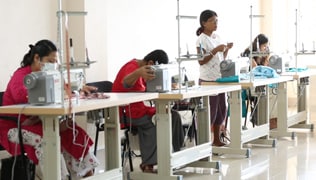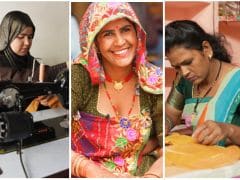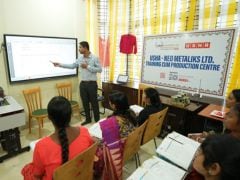Here Is How USHA Along With Educational Institution Is Encouraging Women To Take Charge Of Their Destiny
In the current season of Kushal Ke Kadam, USHA Silai School has collaborated with educational institutions like the University of Kashmir and Punjab University to help girls and women fulfil their dreams through skill development. The aim of the partnership is to equip girls and women with various techniques of stitching. Through this initiative, women are not only taking charge of their destiny but are also helping others become financially independent.
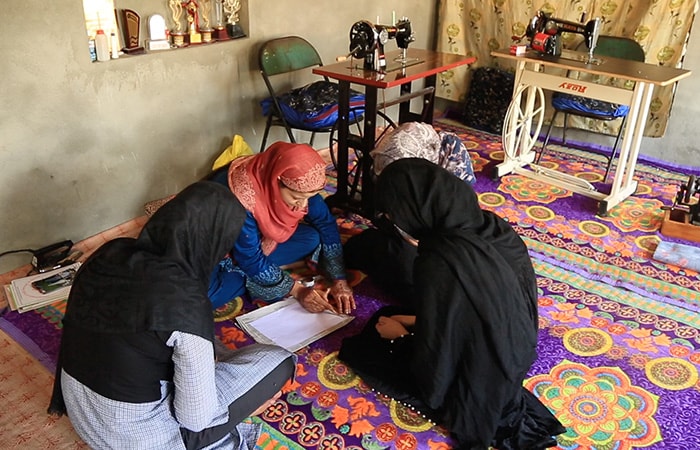
At the University of Kashmir, the Centre For Social Work has set up Silai School in partnership with USHA where not only the students of the university but also other girls and women are getting a chance to learn the techniques of stitching and become entrepreneurs. 23-year-old Danishta Mushtaq, a resident of Ganderbal in Kashmir enrolled herself at USHA Silai School in Kashmir University in 2018. It was the year USHA Silai School program in Kashmir collaborated with Rohit Bal and the women of the program, from the previous batch, went to Mumbai for Lakme Fashion Week.
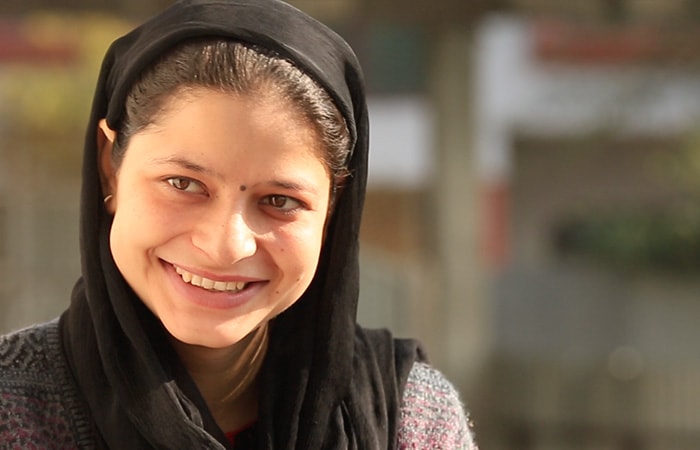
Inspired by the success of her previous batch, Danishta who earlier had some interest in stitching decided to take it up as a career. While sharing about her journey in stitching, Danishta said, 'My physical education teacher from school told me that they received a call from USHA regarding a 10-day training programme. She told me that it is free of cost and that we will also get a machine. I thought it was a great opportunity and began the course in Kashmir University.'The monthly family income was not adequate enough to permit Danishta to pursue her dreams. However, after receiving training at USHA Silai School, not only is she following her dreams but also contributing to the family's monthly income. Danishta has opened her own Silai School now and is helping others become financially independent.
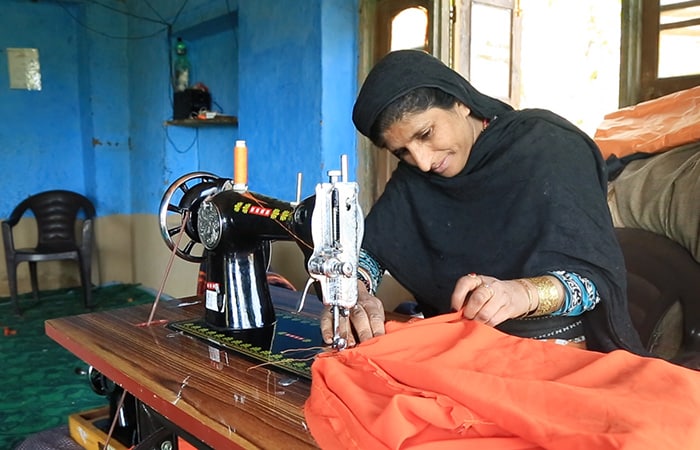
Another learner at USHA Silai School at the University of Kashmir, 39-year-old Jameela, from Arhoma, Kashmir has also turned the problems she was facing earlier into opportunities. By learning the skill of stitching, she has been able to overcome her financial battles. Jameela did not get a chance to get an education as lost both of her parents while she was a child and was married off at a very young age. Life is not easy for Jameela, who is now a mother of three daughters and three sons.
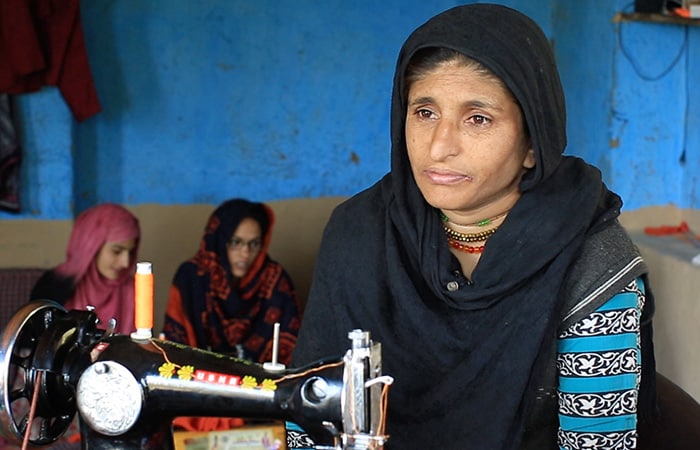
Jameela's husband, a daily wage worker, helped her enrol in the training programmer at USHA Silai School. She instantly developed an interest in stitching. She said, 'felt like I was finally doing something with my life. I soon started earning a living. I am very grateful to USHA. Now I can earn for my children's education and a better future.' Jameela received a sewing machine, certificate, signage board, syllabus book and a service manual at the end of the training. She has now become a Silai School teacher. Currently, she is teaching about three learners and is earning about Rs. 1,500- Rs. 2,000 per month.
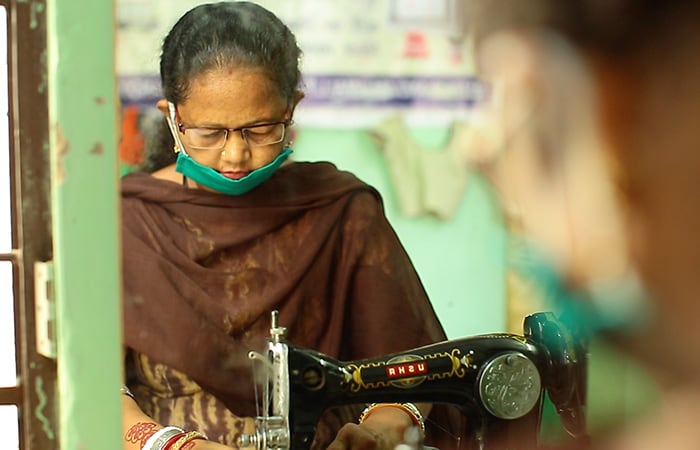
On the lines of its work in Kashmir, USHA Silai School also collaborated with the Department of Social Work in Punjab University. The agenda was to work for the welfare of women in Punjab. The collaboration started in 2015 and since then there has been no looking back. More than 100 women have received training under this programme so far, and most of them are migrants. Ruby Devi, a migrant from Bihar, is one of them. She could not continue her education after Class 9 due to financial issues her family was facing which became a roadblock for her in finding jobs.
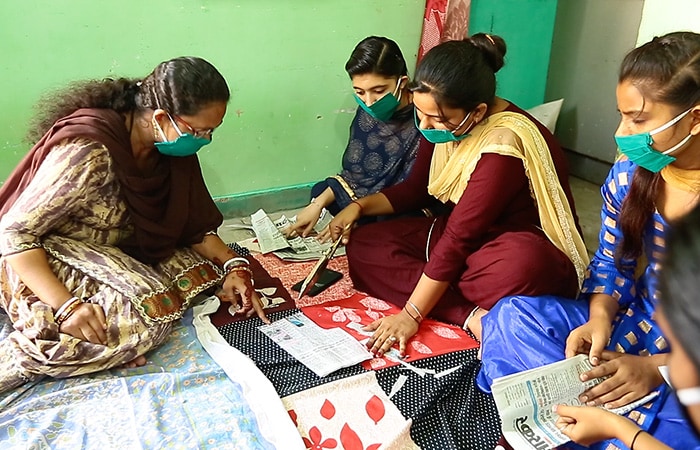
In 2015, Ruby got to know about USHA Silai School programme running in the Centre for Social Work, Panjab University. She enrolled herself in the Silai School. During the training, she learnt stitching as well as machine repairing skills along with various techniques of sewing. The training received has changed her life. She is now a teacher and an entrepreneur and is earning over Rs. 20,000 per month.
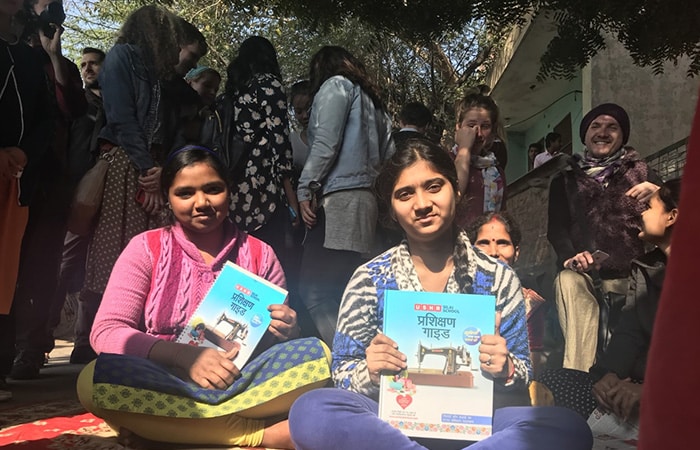
Apart from the University of Kashmir and Punjab University, USHA Silai School has collaborated with universities across the country to implement its training modules under which the women in need are not only provided with lessons on various techniques of stitching but also on repairing basic wear and tear of their swing machines.
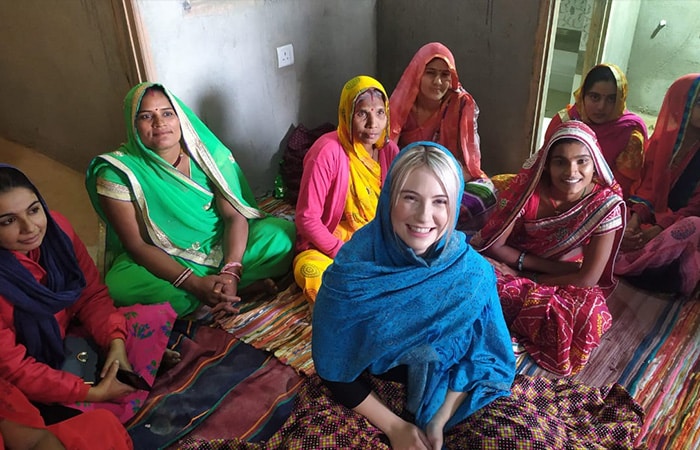
The work done by USHA Silai School initiative has caught the attention of organisations and institutions from across the world, many of which now want to associate with the USHA Silai Schools. One such organization is IndoGenius, a firm that assists universities, businesses, NGOs and government agencies from around the world to interact with India. Acknowledging the efforts of USHA Silai School, Nicholas Booker, Co-founder, IndoGenius said, 'It is extraordinary to think that over 5 lakh women have now benefitted from the USHA Silai School covering almost every far-flung corner of India. We have taken several of our groups; fashion, business, development, economical streams from Australia from UK from America to come to visit USHA corporate office in Gurugram and also to visit a number of Silai Schools in urban and rural settings.'
Adopt a Silai School
About the Initiative
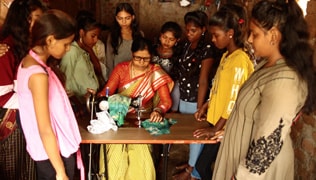
Kushalta Ke Kadam, an initiative by USHA Silai School and NDTV has entered its eighth season. The aim is to empower more women across rural India by teaching them sewing skills and helping them open new doors of opportunities for themselves. The initiative encourages rural women to become financially independent and entrepreneurs by taking up sewing and training others in their respective communities.
Since 2011, the USHA Silai School initiative has trained more than 12 lakh rural women through over 33,000 Silai schools, spanning over 20,751 villages across India.
The women earn Rs. 4,000 – 5,000 per month on an average, with the highest recorded monthly earning being Rs. 84,000 in a month. This earning works as a catalyst towards building their self-confidence, reducing gender inequities, and raising their stature within their families and in society at large.
Latest Stories
- Team NDTV | Monday February 16, 2026
Odisha's Suchismita Sahu, Rajasthan's Preeti Prajapat, Manipur's Akhirun—Usha Silai School's Kushalta Ke Kadam celebrates these awardees, from homemakers to master trainers earning accolades
- Team NDTV | Thursday February 12, 2026
From Ladakh peaks to Assam fringes, Usha Silai School trains tribal women in Turtuk, Kargil & Dakhinkuchi—crafting livelihoods with armed forces, NHPC & NGOs. Stitching national resilience
- Team NDTV | Thursday January 29, 2026
From West Bengal's transgender tailors to Telangana's tribal seamstresses and Meghalaya's embroidery revivalists, Usha Silai School's Kushalta Ke Kadam partners with NIRDPR and state governments
- Team NDTV | Tuesday February 03, 2026
In Odisha's mining heartlands, Mahanadi Coalfields Limited teams with Usha Silai School's Kushalta Ke Kadam and Gram Utthan, empowering tribal women turning them into entrepreneurs
- Written by Team NDTV | Friday January 02, 2026
Usha Silai Schools give second chances to women like Srinagar's Marifat, who rebuilt after widowhood; Madhya Pradesh's Jyoti, escaping abuse to run her own center; and Rajasthan's Vimla, rising from child marriage to tailor and teacher. Through nine-day training, they gain sewing skills, confidence, and income proving one stitch mends lives and inspires communities.
- Team NDTV | Friday December 26, 2025
A new wave of corporate-community partnerships is equipping rural women with skills, income and confidence

